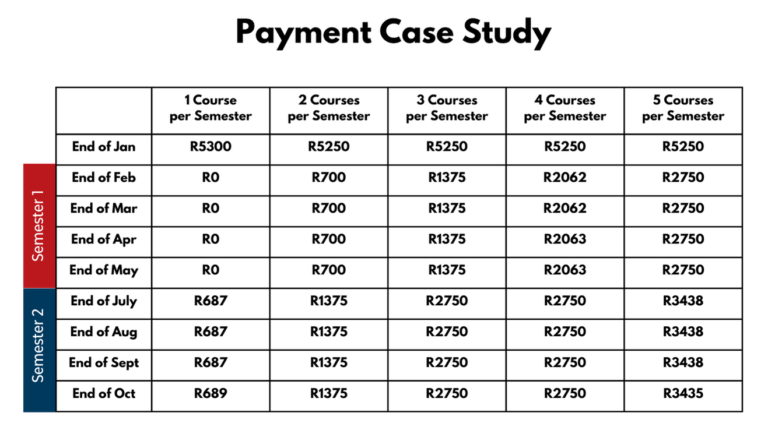Higher Certificate of
ministry
The Higher Certificate in Ministry (HCMin) has a strong focus on pastoral skills and seeks to enrich local church leaders for more effective ministry.
This programme offers an understanding of theological and biblical terms, definitions and concepts that influence thinking and basic research ability.
The courses are facilitated online and this programme can be completed in one year or at your own pace.
Study Mode:
- Distance
The perfect programme for:
- Young people enjoying a ‘gap year’
- Lay people involved in the local church
- Church leaders
- Retirees wanting to increase their biblical knowledge
COURSES WITHIN THE 'HIGHER CERTIFICATE OF MINISTRY' PROGRAMME
First Semester
The following courses are offered as part of the Higher Certificate of Ministry during the first Semester (Feb-June). If you complete the HCMin in one year, all of these courses need to be completed in your first semester of study. If you are completing your HCMin over a longer period, you can choose two or three of these courses in your first year, and the rest in the second year.
Compulsory Courses
This course is aimed at exposing the learner in the basic concepts and practices of biblical interpretation. We recognize that at this early stage of studies, the student will not have been exposed to the study of biblical languages (Hebrew and Greek), and will therefore only study the biblical texts in English. Based on this, students will learn aspects of English exegesis of the Scriptures.
This course is a survey of the books of the Old and New Testaments, as well as an overview of other pertinent information to aid your understanding of the context of Scripture. To this end, the Bible will be dealt with in a book-by-book fashion. The major themes as well as other important details within each book will be discussed. Basic background information and contextual details will also be presented.
The course is designed to orientate the student to the gift of preaching. This course is
designed to apply the lessons learned in the companion discipline within the Biblical Studies
program, where exegetical principles are learned. This course helps the student in applying
the exegetical principles for communication through the discipline of preaching. Therefore,
knowledge of relevant concepts that form the discipline of preaching, such as, the function
of sermons, forming sermons, refining sermons, preaching sermons, etc. are included to
help the student. All of this is important for preaching the truth of the Word of God to the
local church, which forms the Introduction to Homiletics course.
The course, Overview to Pastoral Care, is a basic introductory course in Pastoral Care. The course is designed to locate pastoral care and shepherding people in its proper place in the study of the Church. A major component of the course includes equipping learners in the responsibility of giving encouragement within pastoral ministry. The course also equips the student with basic knowledge in the areas where pastoral care is most needed and how encouragement, help and support can be ministered in those respective areas (e.g. those in grief, those facing various family issues, ministry to the poor, etc.).
Elective Courses
The student will need to complete one of the courses below to complete the requirements of the programme.
Cross-cultural Engagement is an elective course as part of a Higher Certificate Program. This course aims at giving broad-based information that will equip learners to ministry more effectively across the cultural divide. This course explores the history of pioneers of the Christian Faith, while looking strategically at our own context for the future of Christianity in a multi-cultural, pluralistic, diverse world setting. This course will aid the pastor to think more strategically in their ministry.
Bible Read is a one-week retreat that allows the student to engage the eye and ear in reading the entire bible in 6 eays. For the distance students unable to attend the retreat, an invigilator needs to be approached who is able to verify that the student has read the bible out loud, of with the aid of an audio bible.
This course is designed to give learners an overall perspective of Youth Ministry. Africa’s population is 75% young, which implies that the future of the church lies with this generation. On the contrary, church programs are mostly designed to cater to the older generation. For that reason, we would like to influence our denominations towards prioritising youth ministry. To accomplish this, attention will be given to a biblical basis for youth ministry, expose the learner to youth and youth ministry, discuss aspects of youth ministry, and present the place of youth in the church. The course is primarily intended to create awareness and develop an understanding of young people and youth ministry – both for those called to youth ministry and those who are part of the church, whether as a leader or otherwise. Learners should note that Youth Studies is that discipline that considers ministry to young people, broadly defined as: • Children – birth to end of primary school; • Teenagers – generally high schoolers; • Young adults – College and University up to around 30 years old. As such, articles and references may be drawn from sources dedicated to one or more of the groupings considered. In such cases, learners are expected to adapt group-specific material into the broader context when and where required.
Second Semester
The following courses are offered as part of the Higher Certificate of Ministry during the Second Semester (July-Nov). If you complete the HCMin in one year, all of these courses need to be completed in your second semester of study. If you are completing your HCMin over a longer period, you can choose two or three of these courses in your first year, and the rest in the second year.
Compulsory Courses
Christian Doctrine is an introduction to and overview of Systematic Theology, its background, main doctrines and an introduction to its technical names. It includes a brief introduction to the doctrines of the Church, including some of the variations of interpretation posited by some schools. Of the doctrines here discussed, students will be required to study in greater depth in ensuing courses.
The course, Contemporary Ecclesiology, focuses on various dynamics related to facilitating a biblically healthy church for today. This course gives an overview of the Church’s biblical mandate and influence in contemporary society. A holistic approach to ecclesiology suggests the Church must know the biblical content and community context in order to effectively carry out the biblical mandate. This course examines the Church today by applying the afore-mentioned holistic approach as biblical principles of the Church. In so doing, aspects of the Church’s nature, purpose, and mission are highlighted. With this knowledge, the student is tasked to test the reality of contemporary Church life in terms of the scriptural teaching around church planting, evangelism, defending the Gospel, social involvement, leadership, discipleship, pastoral care, world mission, etc. This is where biblically strong, visionary, and excellent leadership are required to lead the Church – leaders with wisdom, discernment and biblical insight. This course is designed to provide a framework for learners to gain an understanding of contemporary church and develop their understanding of the local church as living and dynamic.
The course, Personal Spiritual Development, seeks to facilitate spiritual growth in the life of the student. A healthy relationship with God is imperative for a Christian leader. Christian ministry requires a deep awareness of one’s own spiritual development as a follower of Christ. Ultimately, Christian leaders must first model what we expect from the congregation to model. This is essential for the pastor’s effectiveness in helping others along the journey of Christian living. The primary emphasis of the course is to equip the student with specific knowledge to develop a healthy spiritual life that is biblically based. A critical component of the course is making the connection to utilizing the material in helping others within the congregation to develop spiritually as well. The student is challenged to be an example of a disciplined and purposeful minister. The ongoing spiritual growth as a pastor provides the foundation for ministering to others. By focusing on the Call of God and the His purposes, the student will be encouraged into spiritual development in and through the call of God. The study will confirm essential motivation and encouragement of skills for an effective ministry. The course discusses aspects of the pastoral call, personal growth, development in gifts, experiencing God, etc.
The course, Introduction to Spiritual Direction, seeks to apply basic principles of biblical counselling for Christian ministry. The course is designed to equip the student to systematically understand aspects of worldview and the importance of Christian counselling that operates within a biblical worldview. This equips the learner with basic knowledge to apply within Christian ministry. The course provides an introductory examination of the field of systematic theology as a counselling strategy within Christian ministry. It seeks to synthesize basic theology and psychology, to provide the learner with knowledge and the practical application of basic skills necessary to help those seeking help in Christian ministry. The subject matter for each lesson will include a systematic application of theology for counselling and spiritual direction. Aspects of God, Christ, The Holy Spirit, Human Nature, Sin, etc. will be covered to offer the student an overview of applying Christian doctrine within existential issues. Combined with this, students will be exposed to other material so that they are sufficiently introduced to aspects of Christian counselling for practical application. The course is offered for the duration of the second semester.
The course, Church Ministry, is an application of the theological foundations and principles of the ministry of church administration. The course is designed to equip leaders in a basic understanding of the mission, vision, organization and functioning of the local church and its practices. The course provides for the student an understanding of the organization of the church and a familiarization with biblical directives for the smooth functioning of the church. It also offers knowledge on how decisions are made in light of the mission and vision of the church. It also looks at practical aspects of the character of the leader, and leading and managing a local church from a biblical perspective.
2025 FEES
Higher Certificate of Ministry-
Application Fee - R250
-
Annual Enrolment Fee - R1500
-
Late Enrolment Penalty - R350
-
Annual Technology Fee - R800
Upfront Payment of R5000 to be paid before commencement of study. This payment be credited against your registration fee, technology fee, and the balance will be put toward your course fees. The balance of your course fees for the semester are to be paid monthly, with two 'milestones' - 50% by the 31st of March and 50% by 31 May and 31st of August and 31st of October respectively.

Entry Requirements
- Matriculant with a National Senior Certificate (or equivalent) or
- Students who are 26 years old or older may be admitted through a Recognition of Prior Learning/Experience application
Programme Details
- NQF Level 5
- 120 Minimum Credits
- SAQA #100718
Further Study Opportunities
Students who complete the Higher Certificate in Ministry (NQF level 5) are able to articulate horizontally (on the same NQF level of study) to the Higher Certificate in Theology programme or vertically (to the next level of study) into the Bachelor of Biblical Studies (NQF level 7) programme within the College. Articulation possibilities for further studies on NQF level 5 or where an NQF level 5 qualification is required for admission into a programme at other accredited institutions are available.
